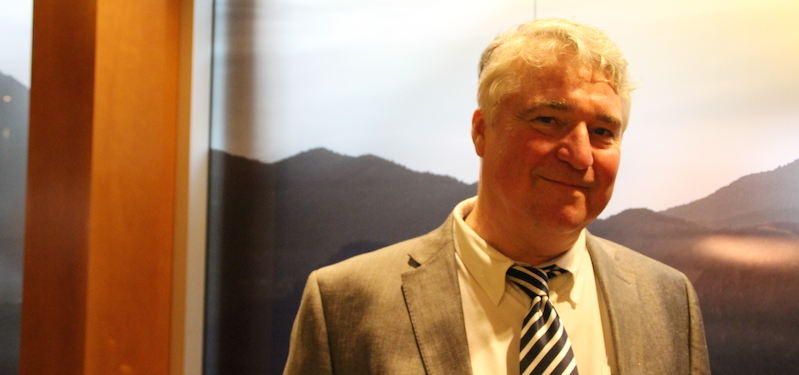RM: It depends on a student’s home country. If a student is from Korea their life-long dream is an American degree so maybe they’ll get their English level up in a Canadian high school but then they would rather go to a small Midwestern college in the US than UBC because they will have an American degree. There’s some flows that you can’t change culturally. But every time that you have a student having to make a decision about “do I stay or do I go?” that’s when you’re going to lose them. Our goal is to try to create more seamless transitions between the language sector, K-12 and post-secondary. Once you’re in grade 10, you’ve got a certain mark and you’re guaranteed entrance into this university or college and you don’t have to do much to do that.
News and business analysis for Professionals in International Education
Have some pie!
Randall Martin, BCCIE, Canada

We have to do a better job of creating the pathways between our communities. With 14,000 international K-12 students in the province, we should be promoting on-shore recruitment. Establishing those pathways is something we’re working toward in British Columbia.
The PIE: Tell me about the off-shore activity of British Columbian providers.
“We have to do a better job of creating the pathways between our communities”
RM: We have the largest off-shore programme in Canada. The lion’s share of those schools are in China, with a small number in Egypt, Qatar, Korea and Thailand. Over the last three or four years it became a bit of a wild west in terms of new applications coming in and people wanting to start up off-shore schools. There really is a sincere attempt to maintain the reputation for quality in British Columbia and I think the ministry felt that quality was being compromised and they were losing a handle on that. So they put a moratorium on offshore school development and came in last year with some fairly stringent rules around inspections, quality, certification of teachers, library holdings, process for applications, etc. The ministry has still not relaxed its opinion on this so they’ve still not made any final decisions yet.
I think if used properly off-shore education can be a great feeder into Canadian post-secondary schools. There are a few places where we should be to raise the profile of a BC education – India, Indonesia, Nigeria.
The PIE: British Columbia was the first province to submit its list of providers for the International Student Programme. How did you make the decision?
RM: It was easy because of the Education Quality Assurance scheme. Only institutions with EQA approval were on the list.
The PIE: How does the scheme work?
RM: If you are EQA approved the government assures quality instruction and guarantees consumer protection. If you have EQA, should the school close down the government guarantees a full refund or replacement in a partner institution in a similar programme.
The PIE: A government-backed tuition protection scheme is pretty impressive.
“It would be nice to have a patchwork of quality assurance schemes across the country where we could then say nationally Canada has this quality assurance”
RM: We’re the only government that does that in Canada. It’s a good model and even if they’re not identical it would be nice to have a patchwork of quality assurance schemes across the country where we could then say nationally Canada has this quality assurance. I think on a certain level it’s understood that should happen but again you’ve got to get 13 provinces and territories to sit down and agree upon it.
The PIE: There have been some impressive growth statistics coming out of British Columbia – an 180% increase in Indian students over the past four years, for example – do you have a limit?
RM: There are limits. Some of our universities say “we’re full” but continue to spend money on recruitment and pathways. So there are more capacity issues in the big cities like Vancouver but fewer across region. I think we can anticipate this continued but not double digit growth. Everybody in the world talks about the best and the brightest. Just because more students are able to travel abroad to study doesn’t mean the talent pool has also grown. I think we have to realise that we’ll get some very good students to BC but we’ll also get, like me, some very average students to British Columbia and that’s ok. If they decide to stay on they’ll be an integral part of the community.
Still looking? Find by category:



Heartiest Congratulation to you & your Team for success in promoting International Education relationships with India specially during BC Premier visit in November 2011